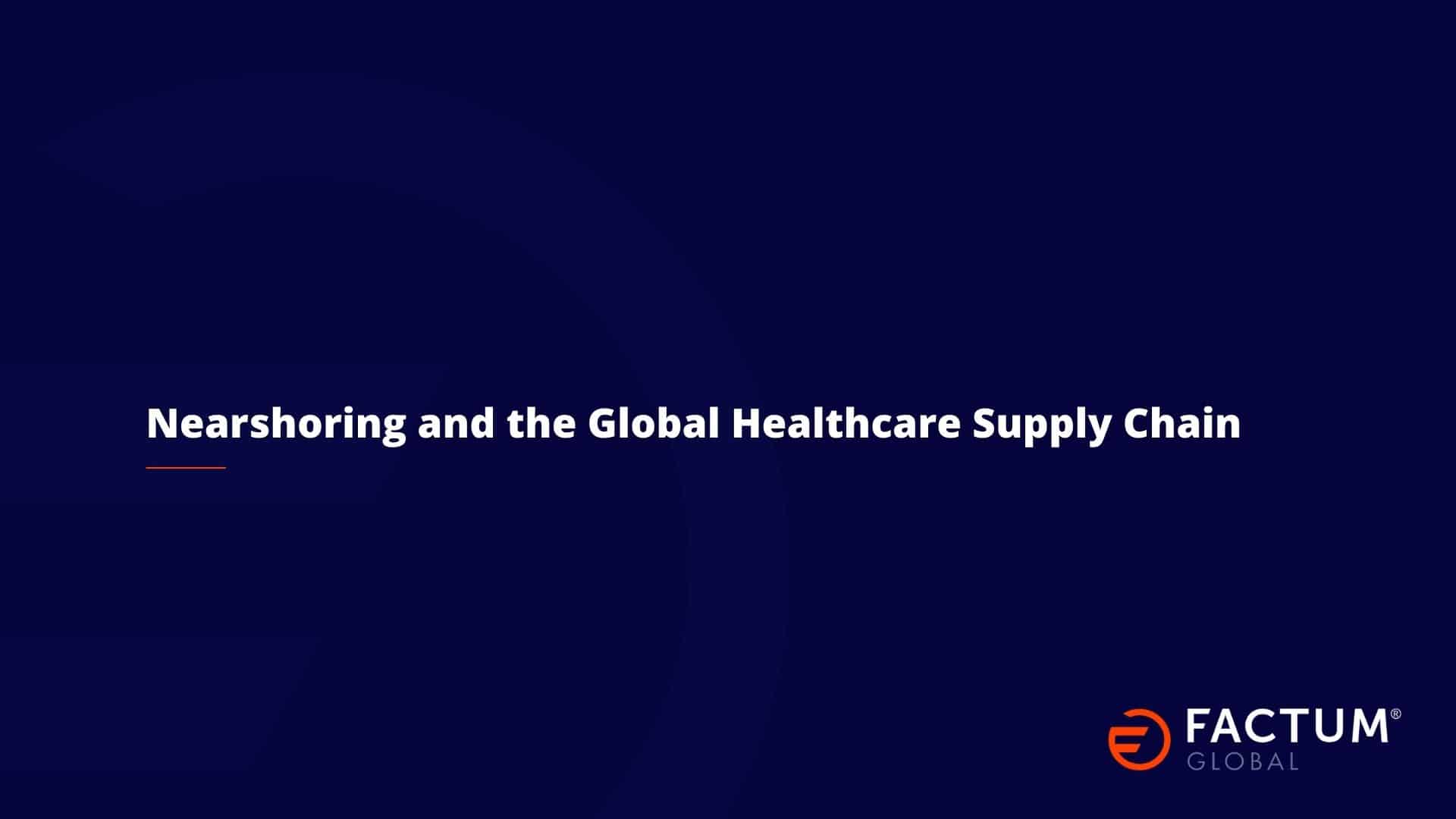Global Insider Talks
October 11, 2022
The Covid-19 pandemic led to a technological revolution for the biotech industry, the topic of our latest Global Insider Talks episode.
- Drastic advancements in diagnostics and access to self-testing;
- Mobile vaccine manufacturing for faster, locally-sourced treatment to underserved and remote populations;
- Building resiliency in global supply chains for healthcare products.

Covid-19 exposed severe global supply chain weaknesses but spurred innovative responses and advancements across the healthcare industry.
What have we learned from the pandemic? Our COO, Jeff Smith, spoke with Phyllis Arthur about the global response to the pandemic, biotech innovation, and how companies and countries can prepare for the next public health crisis.
We condensed a few highlights from the interview and are proud to share them with you.
Here’s more on biotech innovation, the importance of the global healthcare supply chain, and ensuring corporate readiness for the future:
How has healthcare innovation been used to respond to underserved communities? (0:58)
To reach remote populations with locally-sourced vaccines (which is often critical to users), future investments will be made in geographically diverse and mobile vaccine manufacturing, shrinking the supply chain for vaccines.
A well-functioning global healthcare supply chain is critical to cost-competitiveness. (1:04)
Nearshoring aspects of the global healthcare supply chain is one way to build more resilience and improve the response to future public health crises.
What did the pandemic teach us about corporate productivity? (1:03)
To optimize productivity, companies should review their “essential personnel” policy and consider adopting workforce policies used amid the pandemic to ensure the health of workers are protected both at home and in the workplace.






